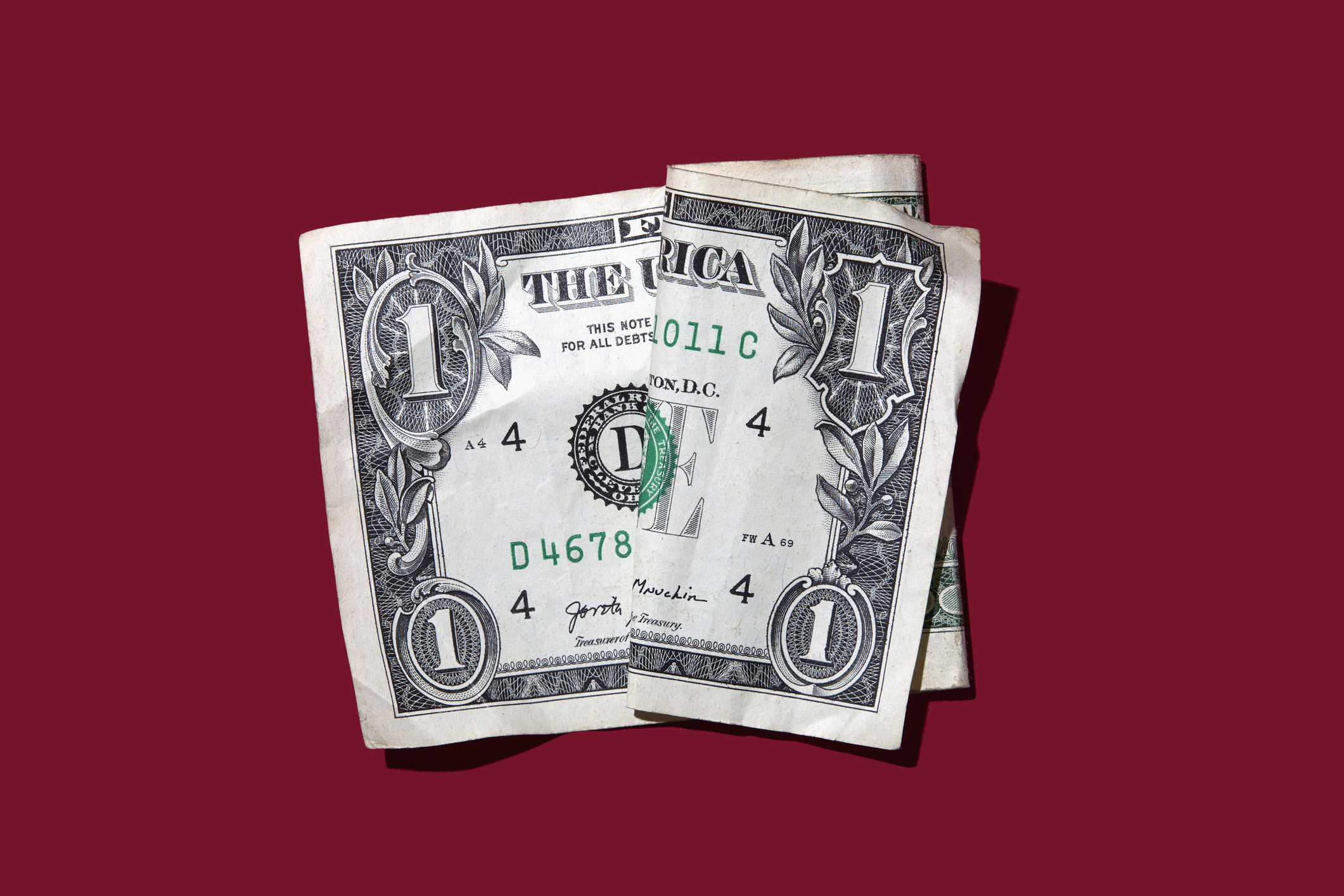Illinois Tax Guide
Explore Illinois's state tax rates for income, sales, property, retirement, and more. Learn how Illinois compares nationwide.


Profit and prosper with the best of Kiplinger's advice on investing, taxes, retirement, personal finance and much more. Delivered daily. Enter your email in the box and click Sign Me Up.
You are now subscribed
Your newsletter sign-up was successful
Want to add more newsletters?
Navigating the complexities of state taxes can be daunting, but understanding the Illinois tax landscape is essential for residents and newcomers alike.
In this guide, we'll explore key components of The Land of Lincoln's tax system, from income and sales taxes to property taxes and retirement benefits.
Illinois state tax: Overview
Illinois might not be the first state that comes to mind when you think of high taxes, but it ranks near the top in several areas. The state has one of the highest sales tax rates in the country, some of the steepest property taxes, and it taxes essentials like groceries, diapers, and prescription medications, which are often tax-free in other states.
From just $107.88 $24.99 for Kiplinger Personal Finance
Become a smarter, better informed investor. Subscribe from just $107.88 $24.99, plus get up to 4 Special Issues

Sign up for Kiplinger’s Free Newsletters
Profit and prosper with the best of expert advice on investing, taxes, retirement, personal finance and more - straight to your e-mail.
Profit and prosper with the best of expert advice - straight to your e-mail.
Still, there is some good news. Illinois does not tax retirement income, which is a big plus for retirees. There is also no state personal property tax, so you will not be paying annual taxes on things like your car.
Read on to learn more about what to expect as a current or future Illinois taxpayer.
[Data for this state tax guide was gathered from a number of sources including the Census Bureau, the state’s government website, and the Sales Tax Handbook. Property taxes are cited as a rate percentage rather than the assessed value.]
Illinois income taxes

Illinois imposes a flat individual income tax rate of 4.95%.
Illinois income taxes in retirement: Income from most retirement plans is exempt.
That includes payments from qualified employee benefit plans (401(k) plans and traditional pensions), government retirement plans, military pensions, and IRAs.
Social Security benefits and Railroad Retirement benefits are also exempt from Illinois state income tax.
Illinois retirement taxes
Illinois is a state that exempts all retirement income. But there is an estate tax in Illinois, which has a $4 million exemption. Estates exceeding that value are taxed between 0.8% and 16%.
- Social Security: Not taxable
- Pensions: Not taxable
- 401k and IRA Distributions: Not taxable
Illinois sales tax

Illinois has a 6.25% state sales tax. Localities can add as much as 5.25%, and the average combined rate is 8.89%, according to the Tax Foundation.
Residents of Illinois must pay sales tax on items that are tax-exempt in some other states.
- Groceries: Not Taxable at the State Level
- Note: As of January 1, 2026, Illinois has removed its 1% statewide sales tax on groceries, but cities and counties can add their own local grocery tax.
- Diapers: Taxable
- Prescription: Taxable
- Clothing: Taxable
How much are property taxes in Illinois?

According to the Tax Foundation, the average effective property tax rate in Illinois is 1.83%, which is one of the highest rates in the country.
Illinois Property Tax Breaks for Retirees
Homestead Exemption: Adults 65 or older might qualify for a property tax exemption of up to $6,000 of a property's assessed value (up to $10,000 in Cook County and $8,000 in counties contiguous to Cook). Illinois offers other types of homestead exemptions to some people younger than 65, too, but exemption amounts may differ.
Assessment Freeze Homestead Exemption: Qualified adults 65 and older may have their property's assessed value frozen. To qualify for the freeze, household income must not exceed $65,000.
Real Estate Tax Deferral Program: Qualified residents age 65 or older with a household income of $65,000 or less can defer up to $7,500 in property tax payments.
Illinois gas tax

Gasoline | $0.19 per gallon |
Diesel | $0.22 per gallon |
Illinois taxes on alcohol and tobacco
Product | Tax amount |
|---|---|
Cigarettes | $1.98 per pack |
Other tobacco product taxes | 36% wholesale price |
Medical marijuana tax | 1.00% |
Recreational marijuana tax | 16.25% (6.25% Illinois cannabis sales tax + 10% state excise tax) |
Source: The Sales Tax Handbook
Product | Tax amount |
|---|---|
Beer | $0.23 per gallon |
Wine | $1.39 per gallon |
Liquor | $8.55 per gallon |
Source: The Sales Tax Handbook
Illinois estate and inheritance taxes
Illinois has an estate tax with a $4 million exemption. Estate tax rates range from 0.8% to 16%. There is no inheritance tax in Illinois.
Related Content
Profit and prosper with the best of Kiplinger's advice on investing, taxes, retirement, personal finance and much more. Delivered daily. Enter your email in the box and click Sign Me Up.

Katelyn has more than 6 years of experience working in tax and finance. While she specialized in tax content while working at Kiplinger from 2023 to 2024, Katelyn has also written for digital publications on topics including insurance, retirement, and financial planning and had financial advice commissioned by national print publications. She believes knowledge is the key to success and enjoys providing content that educates and informs.
-
 4 High-End Experiences Worth the Splurge After 50
4 High-End Experiences Worth the Splurge After 50These curated date ideas provide the perfect backdrop for couples ready to enjoy the very best that the world has to offer.
-
 Health Care Stocks Have Sagged. Can You Bet on a Recovery?
Health Care Stocks Have Sagged. Can You Bet on a Recovery?The flagging health care sector has perked up a bit lately. Is it time to invest?
-
 Costco's Auto Program: Can Membership Pricing Really Save You Money on a Car?
Costco's Auto Program: Can Membership Pricing Really Save You Money on a Car?Costco's Auto Program can simplify the car-buying process with prearranged pricing and member perks. Here's what to know before you use it.
-
 2026 Tax Refund Delays: 5 States Where Your Money Is Stuck
2026 Tax Refund Delays: 5 States Where Your Money Is StuckState Tax From New York to Oregon, your state income tax refund could be delayed for weeks. Here's what to know.
-
 How One Extra Dollar of Income Can Cost You Thousands in Retirement
How One Extra Dollar of Income Can Cost You Thousands in RetirementRetirement Even modest changes in retirement income can raise Medicare premiums under IRMAA. Here’s how a small increase can affect your retirement costs.
-
 First the Penny, Now the Nickel? The New Math Behind Your Sales Tax and Total
First the Penny, Now the Nickel? The New Math Behind Your Sales Tax and TotalRounding Tax A new era of "Swedish rounding" hits U.S. registers soon. Learn why the nickel might be on the chopping block, and how to save money by choosing the right way to pay.
-
 Over 65? Here's What the New $6K Senior Tax Deduction Means for Medicare IRMAA
Over 65? Here's What the New $6K Senior Tax Deduction Means for Medicare IRMAATax Breaks A new tax deduction for people over age 65 has some thinking about Medicare premiums and MAGI strategy.
-
 U.S. Congress to End Emergency Tax Bill Over $6,000 Senior Deduction and Tip, Overtime Tax Breaks in D.C.
U.S. Congress to End Emergency Tax Bill Over $6,000 Senior Deduction and Tip, Overtime Tax Breaks in D.C.Tax Law Here's how taxpayers can amend their already-filed income tax returns amid a potentially looming legal battle on Capitol Hill.
-
 How to Open Your Kid's $1,000 Trump Account
How to Open Your Kid's $1,000 Trump AccountTax Breaks Filing income taxes in 2026? You won't want to miss Form 4547 to claim a $1,000 Trump Account for your child.
-
 In Arkansas and Illinois, Groceries Just Got Cheaper, But Not By Much
In Arkansas and Illinois, Groceries Just Got Cheaper, But Not By MuchFood Prices Arkansas and Illinois are the most recent states to repeal sales tax on groceries. Will it really help shoppers with their food bills?
-
 7 Bad Tax Habits to Kick Right Now
7 Bad Tax Habits to Kick Right NowTax Tips Ditch these seven common habits to sidestep IRS red flags for a smoother, faster 2026 income tax filing.